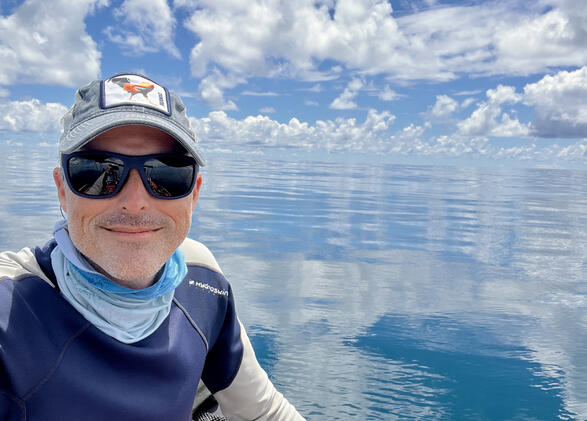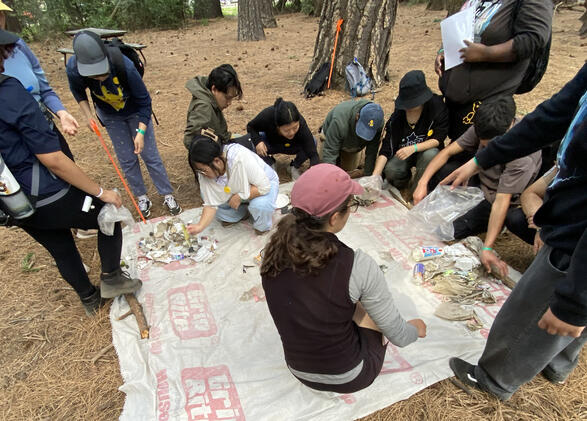Alumni Spotlight: Deeps Dathari
Editor's note: Deepak "Deeps" Dathari is a veteran of the environmental education field, having served for over 20 years as a naturalist, outdoor educator, and, most recently, as a program director for YMCA Camp Campbell. He previously worked for NatureBridge as an environmental science educator and mentor, and he has helped thousands of students connect with nature through a careful emphasis on self-confidence, storytelling and a genuine enthusiasm for the outdoors. This Q&A post was originally published by our partner California Association for Environmental and Outdoor Education, who recently honored Deeps as their 2023 Northern California Environmental Educator of the Year.
A Conversation with Deepak "Deeps" Dathari: The 2023 Northern CA Environmental Educator of the Year #
What has sustained you in the field of environmental education?
Community. There are a lot of careers in the outdoors or environmental field. I've done bird research, for instance, for a number of years, and you tend to be in very isolated crews that are in really remote places. Your crews are small, so your community is extremely small.
But in environmental education, your community is large and it's very like-minded young people who are super driven about the work that they're doing. They're fun people that you want to be around, people that work hard and play hard. It's rare to find the combination of those two things: incredibly beautiful wilderness and a very vibrant community coupled with it. You're instantly welcomed into this community as though you've been part of it for years. I don't get paid very much, but because of these people I'm around, I want to keep coming back so I can keep building those relationships, deepening those friendships. [There is] a sense of solidarity that we're all on the same mission, together.
The other piece is the work itself. It's so special to work with a kid who has lived near the ocean for their whole life and has never actually seen a beach. Their first time touching sand and they're just in this pure, exploratory, sensory overload. I feel privileged to be near that energy. When people are teaching in the classroom, it's very rare to have those moments of awakening. We see it regularly.
Those two factors are the big ones for me [and] why I've been able to stay in it so long, despite it not being the most lucrative. The people I work around are so inspiring, too, because you can learn from them as well. They're always being creative. They're adapting what they do. They're finding new ways to do what they do, and there's a lot of collaboration that goes on. In your professional life, you're being stimulated quite a bit and you're learning so much, always. Whether it's in the field with the kids, or outside of the field when you're planning and having meetings, you're always learning.
What excites you about the future of environmental education?
We live in a society that has become much less interactive with nature. We spend so much more time on screens. Social media is the place where people pour all their energy. There's almost a value of shying away from discomfort that we cultivate in our society. Getting people outside in nature: touching a tree, getting in water, seeing birds. Knowing how valuable that is, how important, how cool and interesting. It’s so needed because that time away from screens is so rare. That time away when you have to interact with people on a personal level and work together as a group, as opposed from a distance.
We really need to create an anti-racist effort in all aspects of society. Because the places we work are on land that has been taken from Indigenous people, and where certain groups have historically felt excluded, the importance of building in anti-racism and cultivating a greater sense of belonging in environmental education are so pertinent right now. It excites me because we’re on the cusp of bringing that in a more robust way into environmental ed. I think people have been tinkering with how to do it well, but now we've gotten a lot of things figured out and [are] implementing it in the field on a regular basis. That really excites me because it makes us feel like agents of change in a broader way.
Photo courtesy of Kim Laizer

